Frame
The inequality, poverty and inclusion cluster looks into the determinants of inequality, the drivers of poverty and the underlying factors that lead to unequal growth. It further investigates how effective interventions can be made for inclusive growth, both at the macro and micro level.
Context
For the first time in over 20 years, global extreme poverty is expected to rise in 2020 as the disruption by the COVID-19 pandemic combines the forces of conflict and climate change, which were already inhibiting poverty reduction progress. The World Bank recently reported that the global extreme poverty rate fell to 9.2 percent in 2017, from 10.1 percent in 2015, which is equivalent to 689 million people living on less than $1.90 a day. At higher poverty lines, 24.1 percent of the world lived on less than $3.20 a day and 43.6 percent on less than $5.50 a day in 2017.
In case of Pakistan, Asian Development Bank suggests that 24.3% of the population Pakistan lives below the national poverty line in 2015, while the proportion of employed population below $1.90 purchasing power parity a day in 2019 is 2.3%.
Research Problems
Interventions in this context can be taken to mean a combination of programs or strategies that tackle an issue or cross-cutting issues. The focal points of inquiry are as follows:
Problems
- What are meanings and drivers of poverty?
- What are cycles of poverty and intergenerational transfer of poverty?
- Why are some communities more unequal than others? What are the connections between inequality and other markers of well-being?
- How do we make growth inclusive? What can other country models explain about successful policymaking for inclusion and growth?
Interventions
- “Why are some groups poorer than others? What role can social networks, social norms and identities play in determining the success of anti-poverty interventions?”
- What is the role of behavioral responses to poverty, especially the link between aspirations and poverty, and how can that be used to design interventions that have greater traction?
- How can a focus on social norms and identities shape and improve intervention design and facilitate inclusion?
- How important is finance for the growth of microenterprises? Can equity-based finance stimulate growth more successfully than debt-based finance?
Related Fellows

Dr. Faiza Ismail has joined LUMS as Assistant Professor-Tenure Track in the Shaikh Ahmed Hassan School of Law (SAHSOL). Before joining LUMS, she has worked with the Institute of Business Administration, Karachi as a Research Consultant. Dr. Ismail obtained her Ph.D. in Business and Law from University College Dublin (UCD), Ireland. She completed her LLM from Trinity College Dublin, Ireland, and LLB from SM Law College Karachi, Pakistan. Her research examines legal and regulatory issues relevant to IMF, Anti Money Laundering Laws, Cyber Laws in Finance, and Islamic Finance in the US, UK, and Pakistan. Her research interests focus on the legal systems of international financial centers, operations of IMF, money laundering laws, and Islamic finance law.

Rehan Rafay Jamil is a Ph.D. candidate in Political Science at Brown University. His research interests include the politics of poverty alleviation, social policy, political participation, and state-society linkages in South Asia. His dissertation examines the political origins and citizenship impacts of Pakistan’s largest cash transfer program targeted exclusively at low-income women: The Benazir Income Support Programme (BISP). Rehan was a fellow in the Graduate Program in Development at the Watson Institute at Brown University and the United States Institute for Peace. He has a Master's degree in International Affairs from Columbia University and a Bachelor's degree in Politics and History with High Honors from Oberlin College. Prior to starting his doctorate, Rehan worked with the World Bank's Social Protection and Labor practice in Washington Dc, focusing on social safety nets in South Asia.

Ghazal Asif is an Assistant Professor of Anthropology at LUMS. Her research and teaching focus on postcolonial regimes of legality and governance; domesticity, kinship, and gender; and everyday life, memory, and identity in multi-ethnic and multi-religious societies. Using in-depth ethnographic and archival methods, Ghazal’s research examines how the Hindu religious minority in Sindh navigates the contemporary regulation of difference and identity in a modern Muslim polity. She focuses on everyday practices of political claim-making and the management of domestic relations by Hindu women.
Ghazal holds a doctoral degree in Cultural Anthropology from Johns Hopkins University. Her dissertation research has been supported by the Wenner-Gren Foundation, the Social Science Research Council, and the American Institute of Pakistan Studies; and received the Honorable Mention for the 2021 S.S Pirzada Dissertation Prize in Pakistan Studies.
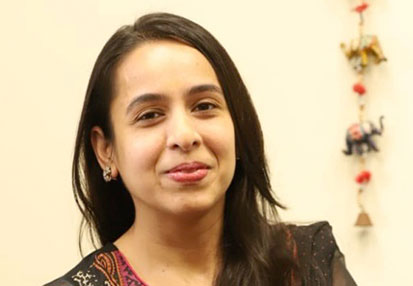
Dr. Hadia Majid is an Associate Professor in the Department of Economics, Lahore University of Management Sciences (LUMS) and Director, Saida Waheed Gender Initiative, (LUMS)
A Fulbright Scholar, Dr. Hadia Majid holds a PhD in Development Economics from The Ohio State University. Her research agenda considers the impact of monetary and public resource constraints on individuals in Pakistan. Her work includes cash transfer evaluations, public goods provisioning, human capital acquisition in the context of intra-household decision-making, and factors affecting women’s access to earned income. Here, she documents and explores the barriers to women’s labor supply and their access to decent, empowering work with a special emphasis on the role of household bargaining structures in mediating women’s access to work. Her expertise lies in RCT, quasi-experimental, and quantitative driven fieldwork. She has also done qualitative work with low-literate, low-income informal and formal sector women workers.

Dr. Kashif Zaheer Malik is an Assistant Professor of Economics at LUMS. He is a Fulbright Scholar and has a Masters and PhD degree in Economics from Florida State University. Dr. Malik is an economist with over twelve years of experience in the areas of Microfinance, Applied Economics, Econometrics and Economic Analysis. He has done research and consulting assignments for International agencies (IPA, IGC, DFID, World Bank, Global Fund to End Slavery), MNC’s (Coca-Cola), Banks(Barclays’s) and Government. His academic research is published in esteemed journals such as in Oxford Review of Economic Policy (OXREP), Economic Modelling and Journal of Economics and Finance.
His current research looks at risk-sharing financial contracts within the microfinance industry. Dr. Malik along with a team of researchers from University of Oxford has been investigating whether the debt-based nature of microcredit contracts (often with high interest repayments that are quite rigid) may be one of the reasons for the disappointing results on microcredit, and whether a contract based on the principles of equity financing which helps the entrepreneur better share in risk and reward, may be more successful in stimulating microenterprise growth.

Dr Tania Saeed is an Assistant Professor of Sociology at the School of Humanities and Social Sciences at LUMS. As a sociologist of education she is trained in qualitative research methods, with expertise in education and securitization, citizenship and social justice. Her work ranges from exploring Islamophobia and securitization in the context of the UK, to examining the increasing securitization of education in Pakistan. She is the author of Islamophobia and Securitization. Religion, Ethnicity and the Female Voice (2016, Palgrave Macmillan) and the co-author of Youth and the National Narrative. Education, Terrorism and the Security State in Pakistan (2020, Bloomsbury).
Her on-going research explores the politics of identity and religious ideology through the teaching of language and literature subjects in refugee, government and low cost private schools in Pakistan. She is also collaborating on research with colleagues at the University College London (UCL) to examine the role of historiography in the teaching of history in schools in Punjab. As a Co-Investigator on a GCRF Development Grant with colleagues from the University of Bristol she is supporting civil society initiatives towards using digital media in the teaching of citizenship with a focus on education and peace.
Saeed has a DPhil in Education from the University of Oxford, where she was a Wingate Scholar (2011-12) and an HEC scholar (2008-11), and an MSc in Gender, Development and Globalization from the London School of Economics and Political Science (LSE). She is the elected Chair (2019-21) of the South Asia Special Interest Group (SA SIG) at the Comparative and International Education Society (CIES), US.

Dr. Farah Said is currently an Assistant Professor at the Lahore School of Economics and a Research Fellow at the Centre for Research in Economics and Business.
In her work, Dr Said uses field and lab experiments to study the dynamics of poverty and gender in LMICs. Her current research investigates the effectiveness of community engagement and inclusive education in improving learning outcomes and psychosocial skills of students; the role that peer pressure and agency in the household can have on individual decision making; and the role of aspirations in motivating female labor force participation. She is also investigating the role of behavioral interventions in sustainability of alternative energy sources in rural settings, and of behavioral biases that influence demand for credit and saving in low income households.
Dr. Said has a Ph.D. in Economics from Lahore School of Economics, MSc. in Financial Economics from the University of Oxford and BSc (Hons.) in Economics from the Lahore University of Management Sciences.
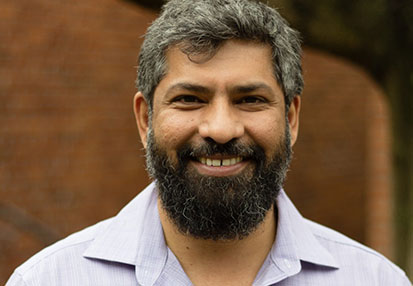
Rashid is an Assistant Professor at the Lahore University of Management Sciences. He holds a PhD in Economics from the New School for Social Research.
Rashid's work showcases his interest in the importance of social and political identity for economic outcomes, and he has a long standing interest in internal and international migration from South Asia. He uses both quantitative and qualitative data collection methods for his research, and has led large household survey data collection efforts as well as experimental data, and semi-structured interviews and focus groups. His interest in identity and economics has led him to question the robustness of disciplinary boundaries, and to reconsider the link between economic, cultural and political change. He is keenly interested in more substantive discussions on the poverty of methodological individualism and questioning how markets handle (or fail to handle) basic problems of resource allocation.

Bilal Siddiqi serves as Director of Research and Growth at The Life You Can Save, where he lead in-house research and evaluation and help set strategy for charity selection, fundraising, and partnerships.
Dr. Siddiqi is a development economist working on poverty, institutions, and conflict in low- and middle-income countries. His academic research applies experimental methods to fundamental problems of development. His work has been published in the Quarterly Journal of Economics, Science, Lancet, and others, and covered by the New York Times, the Washington Post, NPR, CBS, New York Magazine, Voice of America, Le Monde, VoxEU, the Daily Mail, Economic, and Political Weekly, the Hindustan Times, Público, El Espectador, and several other outlets.
Dr. Siddiqi has also received generous support from the UK’s Foreign and Commonwealth Development Office, USAID, the US DoD’s Minerva Research Initiative, the World Bank, the UN Peacebuilding Fund, the Open Society Foundation, 3ie, the International Growth Centre, and Stanford University.
Dr. Siqqiqi is also a non-resident fellow at the Center for Global Development, a member of Evidence in Governance and Politics, a research affiliate of the International Growth Centre and Innovations for Poverty Action, and a fellow of the Centre for Economic Research in Pakistan, the Consortium for Development Policy Research and the Mahbub Ul Haq Research Centre.
Dr . Siddiqi received his Ph.D. and M.Phil. in Economics from Oxford University, where he studied as a Rhodes Scholar.

Dr. Shandana Khan Mohmand is Research Fellow in the Governance cluster at the Institute of Development Studies (IDS) at the University of Sussex.
She has over 18 years of experience teaching undergraduate, graduate, and professional training courses.
As a social scientist, her research has increasingly focused on the relationship between political participation, inequality and accountability and her research interests include democratisation, local politics, and the political economy of public policy and service delivery.
She has a D.Phil in Development Studies and a Masters in Governance and Development from IDS, University of Sussex. She also holds a Masters in Sustainable International Development from Brandeis University (USA) and a BA in Political Science and Economics from McGill University (Canada).
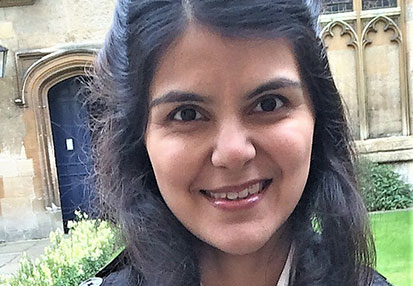
A Noon Scholar, Nadia Mukhtar has a Masters in Economics for Development from Oxford University. She is a Teaching Fellow at the Department of Economics at LUMS and her research interests lie in the areas of development microeconomics, trade-related development and industrial organisation. She has researched widely for international development organisations and the government on a breadth of policy issues pertaining to competitiveness and growth of SMEs, youth engagement and social networks, as well as the trade-development nexus.
Her recent works include analysing the impact of youth (dis)engagement on development in Pakistan for the UNDP National Human Development Report 2017 and the effect of social networks on the uptake of microfinance in India. She has also looked at how trade agreements can raise bilateral trade between Pakistan and its neighbors (China, India and the Central Asian Republics). Policy work includes regional benchmarking of the competitiveness of Pakistan’s automotive and ready-made garments sectors that informed key government policies. Currently, she is looking at how Pakistan can harness the export potential of its pharmaceutical sector and is also using a survey-based study to assess the economic impact of COVID-19 on SMEs across Pakistan.

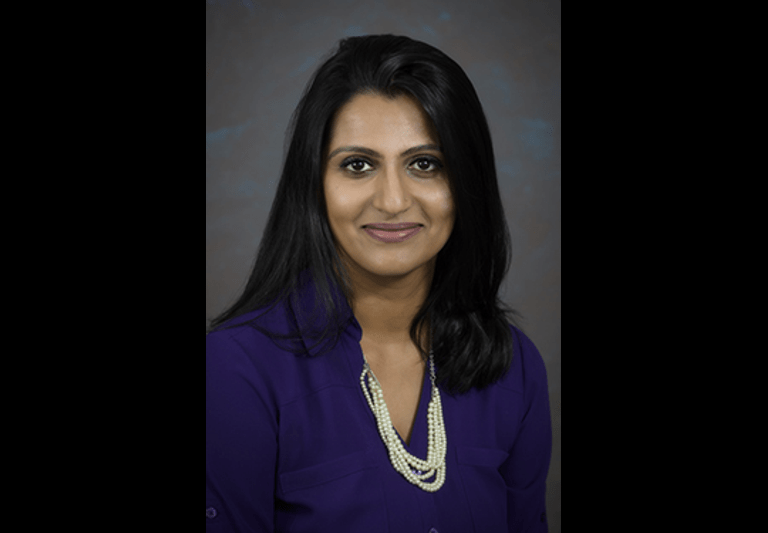
Sabrin Beg is an Assistant Professor of Economics at the Lerner College of Business and Economics of the University of Delaware. Beg has a Ph.D. in Economics from Yale University, with a primary area of expertise in development, economic history, political economy, and applied microeconomics. Beg is currently working on projects in the above fields in Pakistan, Bangladesh, Ghana, and India. Recent work by Beg attempts to understand the process of structural change in developing economies, with a focus on property rights, gender, and human capital.
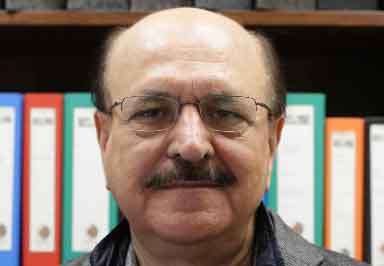
Dr. Abid Aman Burki is a Mahbub ul Haq Research Centre fellow who served as Professor at the Economics Department at LUMS until 2020. From 2003 to 2010, Dr. Burki was Director of the Centre for Management and Economic Research (CMER) at LUMS. Prior to joining LUMS, he has been a Professor (1999-2002) and Head of Economics Department (2000 – 2002) at the Quaid-i-Azam University where he has held other academic positions since 1985. He has also taught at the Kansas State University and the BZ University.
His main current research areas are in technical efficiency and productivity, dairy sector, health sector, agriculture sector, industrial sector, inequality and poverty. He has authored or co-authored more than 100 articles, book chapters and professional reports. His academic research has appeared in World Development, Energy Economics, Applied Economics, Journal of Economics & Business, Land Use Policy, Journal of Development Effectiveness, Economics Bulletin, Pakistan Development Review and other journals.
He has received several research grants and has been a consultant to the Government of Pakistan, UNICEF, UNESCO, World Bank, JICA, IFPRI, Nestle Pakistan, Tetra Pak Pakistan, Indus Motor Company, GIZ, Oxfam, IGC, among others.
He holds a PhD degree in Economics from Kansas State University and is the recipient of the 2001 President of Pakistan’s academic distinction award Izaz-i-Fazeelat.

Ali Abbas is a doctoral candidate in Applied Economics and Management at Cornell University. His professional work includes working with the governments of Punjab and KP on the design of property taxation. Moreover, Ali has previously been associated with organizations such as the World Bank, the Center for Economic Research in Pakistan, and the Brookings Institution.
Ali’s areas of interest lie in public finance and development economics. His research focuses on taxpayer responses to tax policy, and the efficiency, distributional, and revenue outcomes of different income and property tax regimes, both in the United States and in developing country settings.
Before enrolling at Cornell, Ali attended the public policy program at the University of Minnesota as a Fulbright scholar.

Miguel Loureiro is a Research Fellow at the Institute of Development Studies (IDS), the University of Sussex focusing on the analysis and improvement of state-citizen relations. He investigates the state-citizen interface both from a citizens’ perspective, examining accountability and empowerment relations, and a state’s perspective, identifying opportunities for better state responsiveness.
He trains and advises government research units, schools of government, and bilateral agencies to improve the engagement between research and policymaking, training researchers on how to communicate effectively with policymakers and policymakers to make better use of research in policy processes.
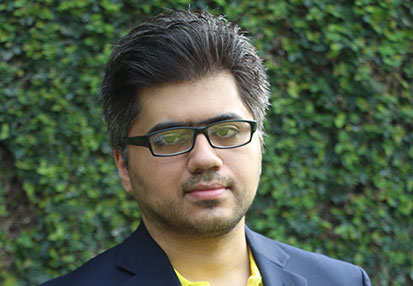
Dr. Adeel Tariq is an Assistant Professor of Economics at the Lahore University of Management Sciences. A Fulbright Scholar, he holds a PhD in Economics from Binghamton University, MSc in Economics from the Lahore University of Management Sciences, an MBA from the Lahore School of Economics and a BSc (Hons) in Economics & Management from the University of London. His research interests include the analysis of firm-level productivity and efficiency, the role of information frictions in emerging markets, housing affordability in developing countries and labor market dynamics.

Sadaf Ahmad is an Associate Professor of Anthropology in the Mushtaq Ahmad Gurmani School of Humanities and Social Sciences at LUMS.
She is the author of Transforming Faith: A Story of Al-Huda and Islamic Revivalism Among Urban Pakistani Women (2009) and the editor of Pakistani Women: Multiple Locations and Competing Narratives (2010). Gender has been a cross-cutting theme in her research to date and it has intersected with a variety of domains: religious revivalism, indigenous women’s social movements, gender-based violence, and Pakistani cinema. Her current research project is on Pakistani policewomen.
Dr. Ahmad received her Ph.D. in Cultural Anthropology from Syracuse University in 2006.
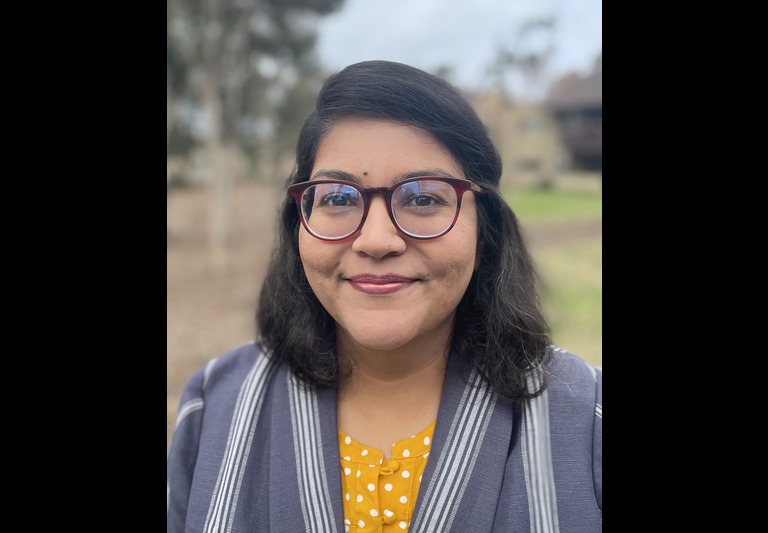
Syeda ShahBano Ijaz is a Ph.D. Candidate in the Political Science department at the University of California-San Diego. Her research is situated at the cusp of international development and comparative politics, and explores the strategic distributive politics of foreign aid delivery in developing countries. Ijaz argues that the presence of high last-mile hurdles in the form of bureaucratic costs and low physical mobility carve a significant role for local politicians in aid economies. Additionally, the salience of last-mile services for poor voters mobilizes them to increase demands on representatives, allowing a localized form of accountability to emerge around the last mile.
Ijaz's current research focuses on Pakistan and she has accumulated two years of fieldwork experience in the country. Before joining UCSD, She completed an M.A. in Politics from New York University and an MS.c. in Economics for Development from the University of Oxford as a Commonwealth Scholar.
In 2017, she was a USIP Junior Peace Fellow at the Lahore University of Management Sciences. Previously, she has consulted with the World Bank, UNICEF, and the Adam Smith Institute.
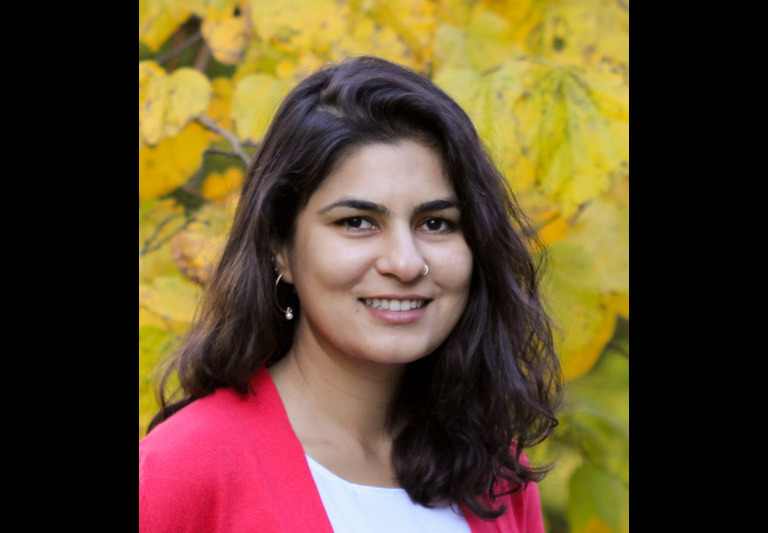
Batool Zaidi is an Assistant Professor of Sociology at Western Washington University and a Research Affiliate at University of Washington’s Center for Studies in Demography and Ecology.
Her research intervenes in demography and global sociology by showing that the motivations, desires, and behaviors of women in the Global South are multi-dimensional and context dependent. Applying demographic methods to available survey data, her doctoral research illustrated the importance of integrating critical theory into quantitative research on gender differentials in health outcomes to strengthen regionally based and empirically grounded demographic research. Her current research projects expand on this body of work as she continues to explore ways to expand critical demography through mixed-methods research on South Asian women’s status and shifting gender dynamics over the life course.
Previously, Batool was at the Population Council’s Islamabad office, where she worked on projects focusing on family planning, girls’ education, maternal health, the demographic dividend, and sex-selective abortions. She has a PhD in Sociology from the University of North Carolina at Chapel Hill, a master’s degree in Population and Development from the London School of Economics and a bachelor’s degree in Economics from Mount Holyoke College.
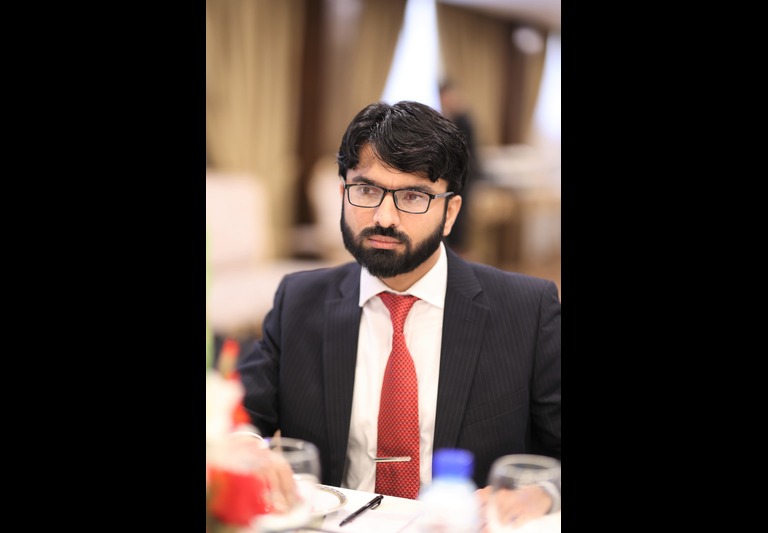
Usama Khawar currently serves as the Assistant Advocate General, Punjab at the Office of Advocate General Punjab, where he contributes to legal advocacy and policy formulation. In addition, he holds the role of adjunct faculty at the Shaikh Ahmad Hassan School of Law (SAHSOL) at LUMS, teaching courses on constitutional law and policy.
With a multifaceted approach to legal advocacy, Usama has demonstrated a profound interest in labor law and policy. His extensive litigation and advocacy efforts before the Supreme Court of Pakistan have led to significant advancements in the field of occupational safety and health (OSH), especially in the Punjab. Notably, his contributions played a pivotal role in the formulation of a comprehensive law on occupational safety and health in the province. As a testament to his expertise in this area, Usama authored a comprehensive report on OSH, published by the Human Rights Commission of Pakistan (HRCP).
In addition to his work in labor law and policy, Usama has been actively involved in advising the Punjab Government and Provincial Assembly on matters related to Local Government Law and Prison Reforms. He has been appointed to official committees constituted by the Punjab Government, where his insights and recommendations have informed key policy decisions.
Usama's research interests extend beyond labor law to encompass justice system reforms, policing, and local governance. He is a regular contributor to DAWN, a leading national newspaper, where he shares his insights on legal and policy matters. Additionally, Usama frequently appears on television programs to discuss pertinent issues related to law and policy, further amplifying his impact on public discourse.
Educationally, Usama holds a Master's degree from Columbia University, where he specialized in constitutional law. He further enriched his academic pursuits by obtaining another Master's degree from Central European University in Comparative Constitutional Law, solidifying his expertise in legal and policy domains.
In his capacity as a legal professional, Usama has actively championed the cause of local governments in Pakistan for over six years, engaging in litigation, organizational endeavors, and the creation of a groundbreaking course on Local Governments in Pakistan. His multifaceted contributions reflect his unwavering dedication to advancing democratic principles, social justice, and labor rights in the country.
Postal Address
LUMS
Sector U, DHA
Lahore Cantt, 54792, Pakistan
Office Hours
Mon. to Fri., 8:30 a.m. to 5:00 p.m.

